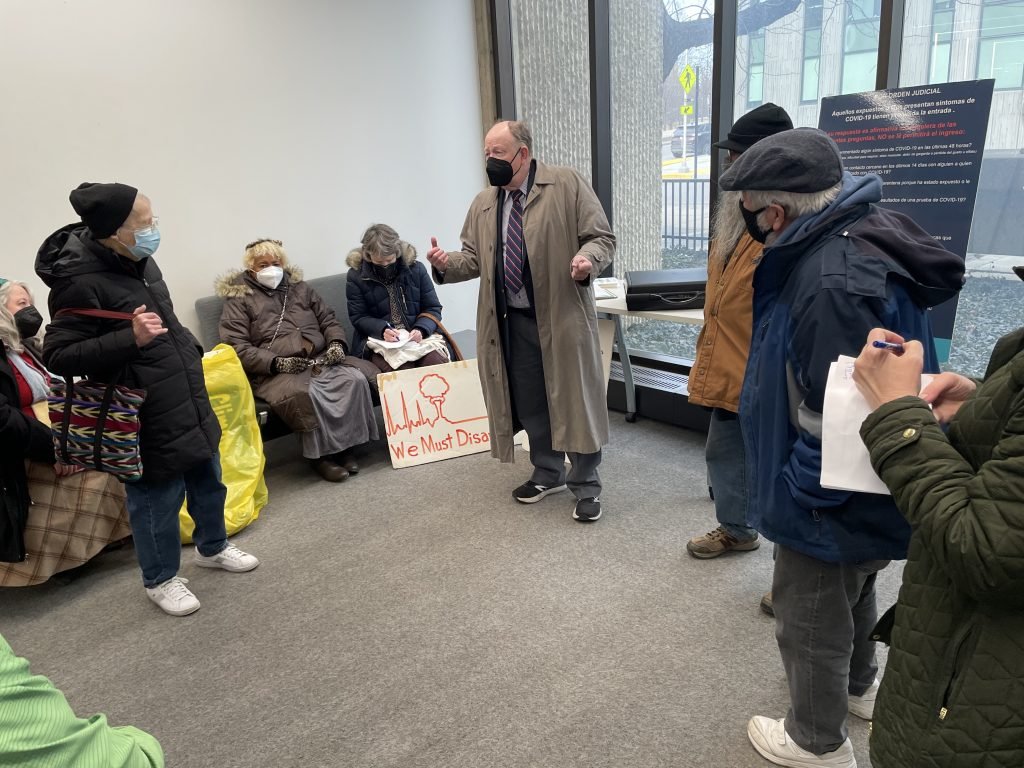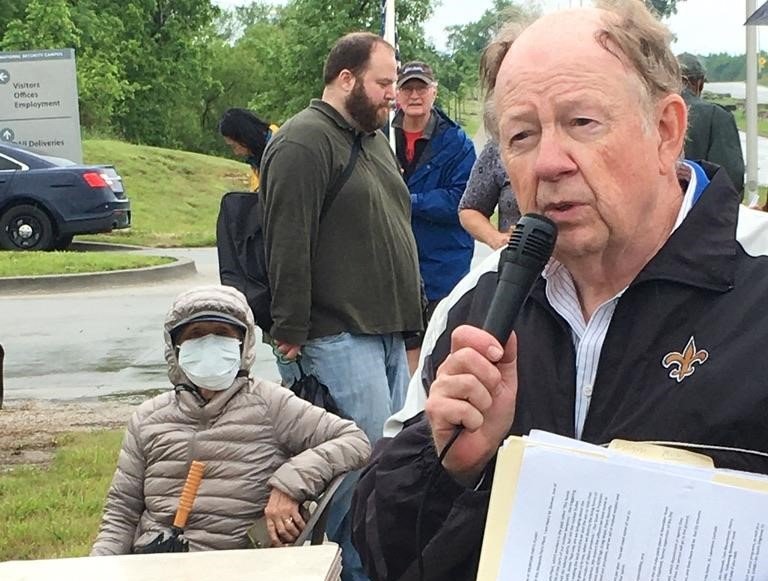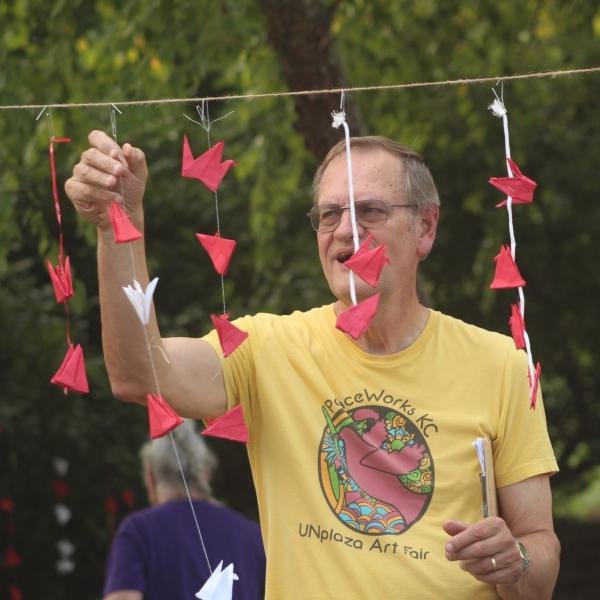By Mary Hladky

Spencer Graves, PeaceWorks-KC secretary and KKFI radio host for Radio Active Magazine, extended an invitation to Mubarak Awad, a prominent advocate of nonviolent resistance, to speak on the topic “Ending the Cycle of Violence in Israel & Palestine.” On May 4, Mubarak spoke to about 100 persons at All Souls Unitarian Universalist Church in Kansas City, MO. The video is here:
Ending the cycle of violence in Israel/Palestine ~ with Mubarak Awad and Spencer Graves – YouTube
Mubarak told us he is a Palestinian Christian, born in Jerusalem in 1943. Most Palestinians are Muslims but they share their holidays with each other. After World War II, there were many marriages between Jews and Palestinians. Mubarak said that once the State of Israel was established, the Palestinian children of mixed marriages were not accepted.
Mubarak was 5 years old in 1948 when there was no Israel, just Jews. His family was forced to leave their home. His father had already died from a gunshot wound. His mother struggled to care for all her children, and other Palestinians helped raise four of them, one being Mubarak. These traumatic events have affected him every day of his life, he said. He worries about all the children now suffering in Gaza.
Mubarak credits his mother for his dedication to nonviolence. Even though her husband was killed with a gun, she asked her children to promise that they wouldn’t own a gun, that they would not kill.
Mubarak received a scholarship to study at a college in Tennessee. There he saw firsthand that white people in the US did not like Black people; he was taken aback by how they were treated. After studying in the US, Mubarak returned to Palestine.
In 1983 he founded the Palestinian Centre for the Study of Nonviolence, in Jerusalem. The Palestinian Centre taught liberation through nonviolence methods. He wanted to educate about reconciliation, peace, justice, and nonviolence as the way to gain independence from Israel. He spoke to Palestinians about Gandhi and how the Indian people liberated themselves from the UK through nonviolence.

With others, Mubarak advocated nonviolence tactics for the First Intifada, 1987-1993. The First Intifada was a sustained series of protests and acts of civil disobedience carried out by Palestinians in the Israeli-occupied Palestinian territories and Israel in the Palestinians’ struggle for independence. Mubarak was expelled by Israel in 1988 for organizing nonviolent civil disobedience. Mubarak said he was expelled because the Israelis were afraid of the effectiveness of nonviolence. Mubarak was also a US citizen and has lived in the US since 1988.
On Sunday, May 5, during the All Souls Forum, Mubarak talked about “7 Steps to End the Cycle of Violence in Israel and Palestine.” The Q&A sector of the forum is here: Ending the cycle of violence in Israel and Palestine ~ with Mubarak Awad (May 5, 2024) – YouTube. You can also read Mubarak’s article, on the same topic, here.
–Mary Hladky, a vice chair of PeaceWorks-KC, is also a leading voice in United for Peace and Justice. (c) 2024, Mary Hladky, Jim Hannah, Spencer Graves, Mubarak Awad, Creative Commons Attribution Share-Alike 4.0 International License.












